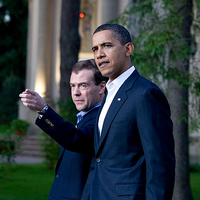
The European Union’s foreign policy chief, Catherine Ashton, and Iran’s top nuclear negotiator, Saeed Jalili, are currently involved in a diplomatic dance over resuming talks on Tehran’s nuclear program. If the talks do indeed come to fruition, Ashton could assume the negotiating role previously played by her predecessor, Javier Solana. While Solana’s diplomatic efforts ultimately did not bear fruit (.pdf), the circumstances that hampered his attempts to resolve the Iranian nuclear standoff — namely, the lack of U.S. participation and Iranian perceptions that the country had little to gain by talking with Europe — have since improved and could be […]


